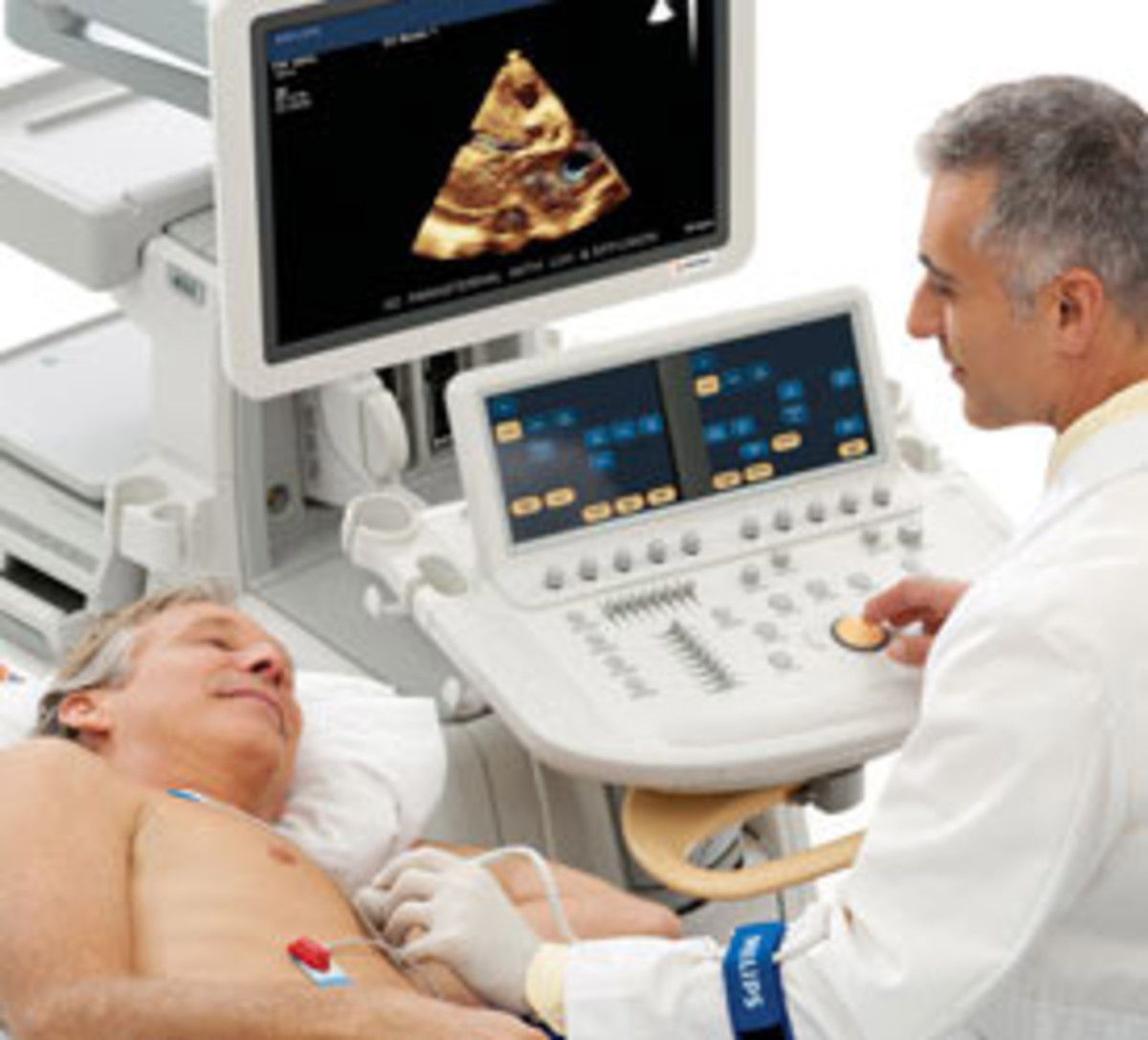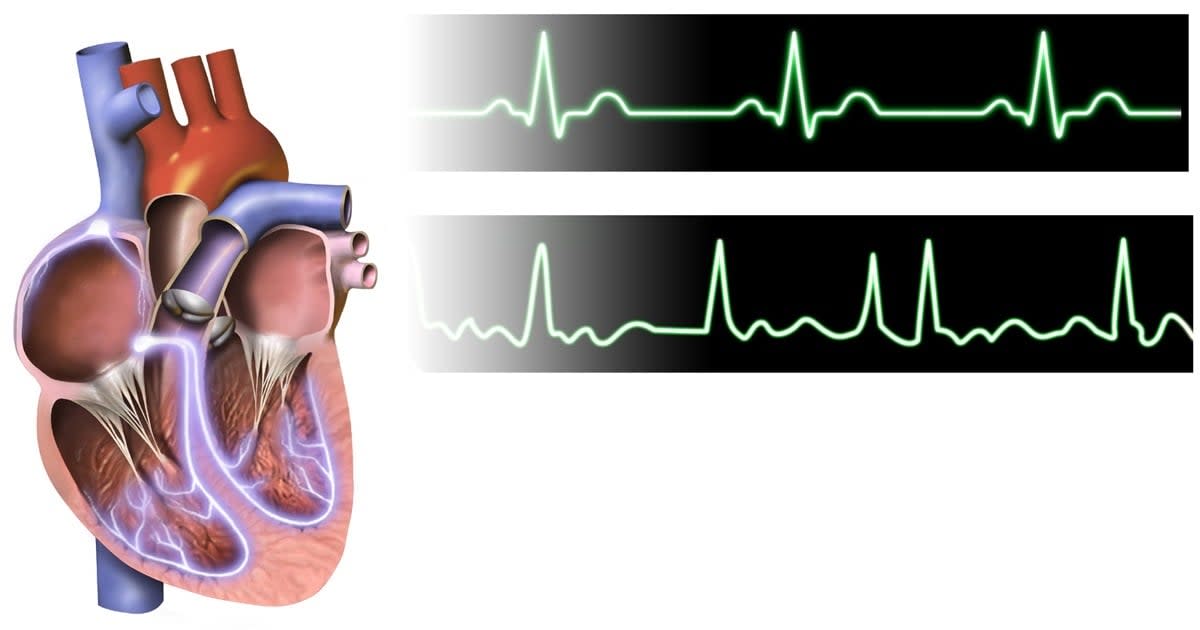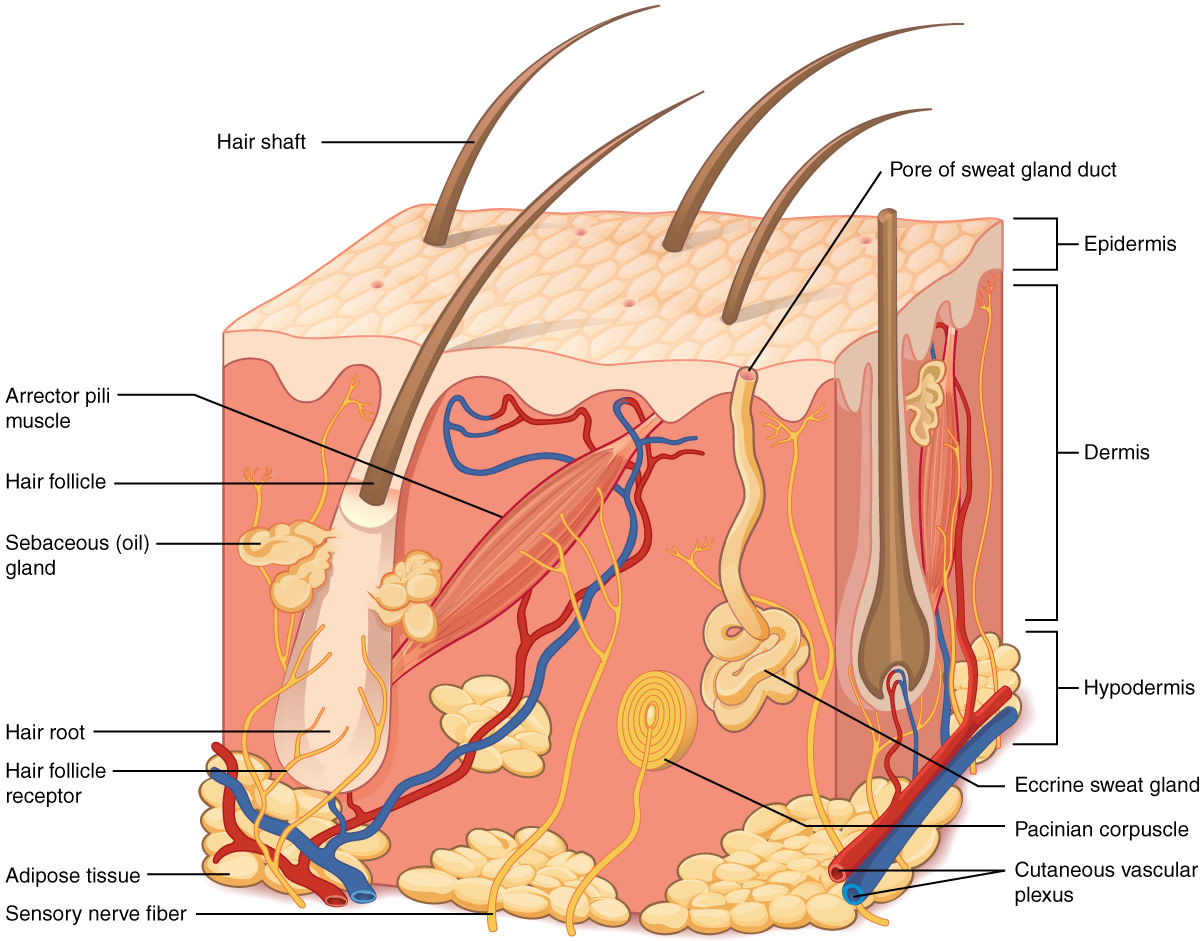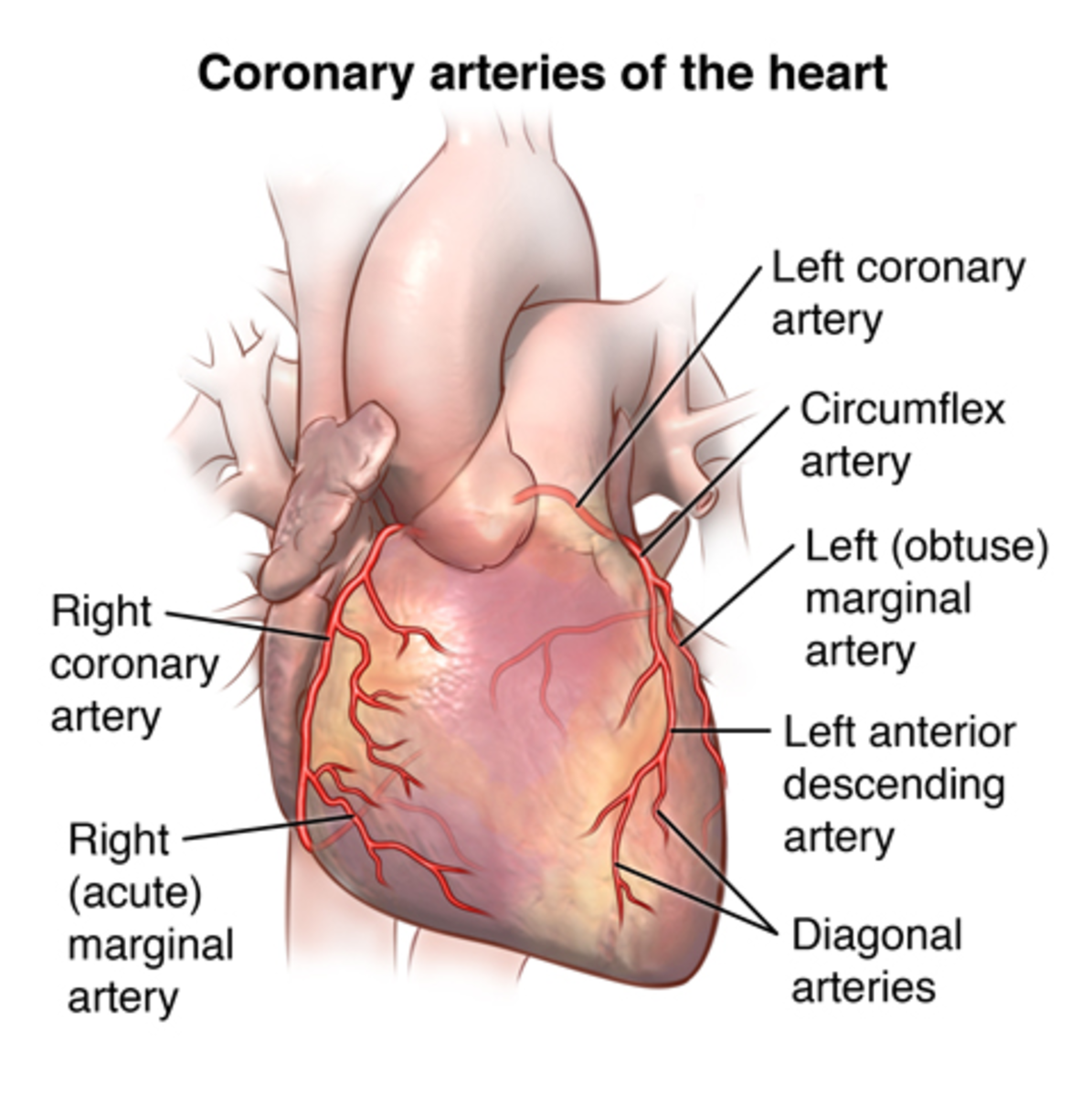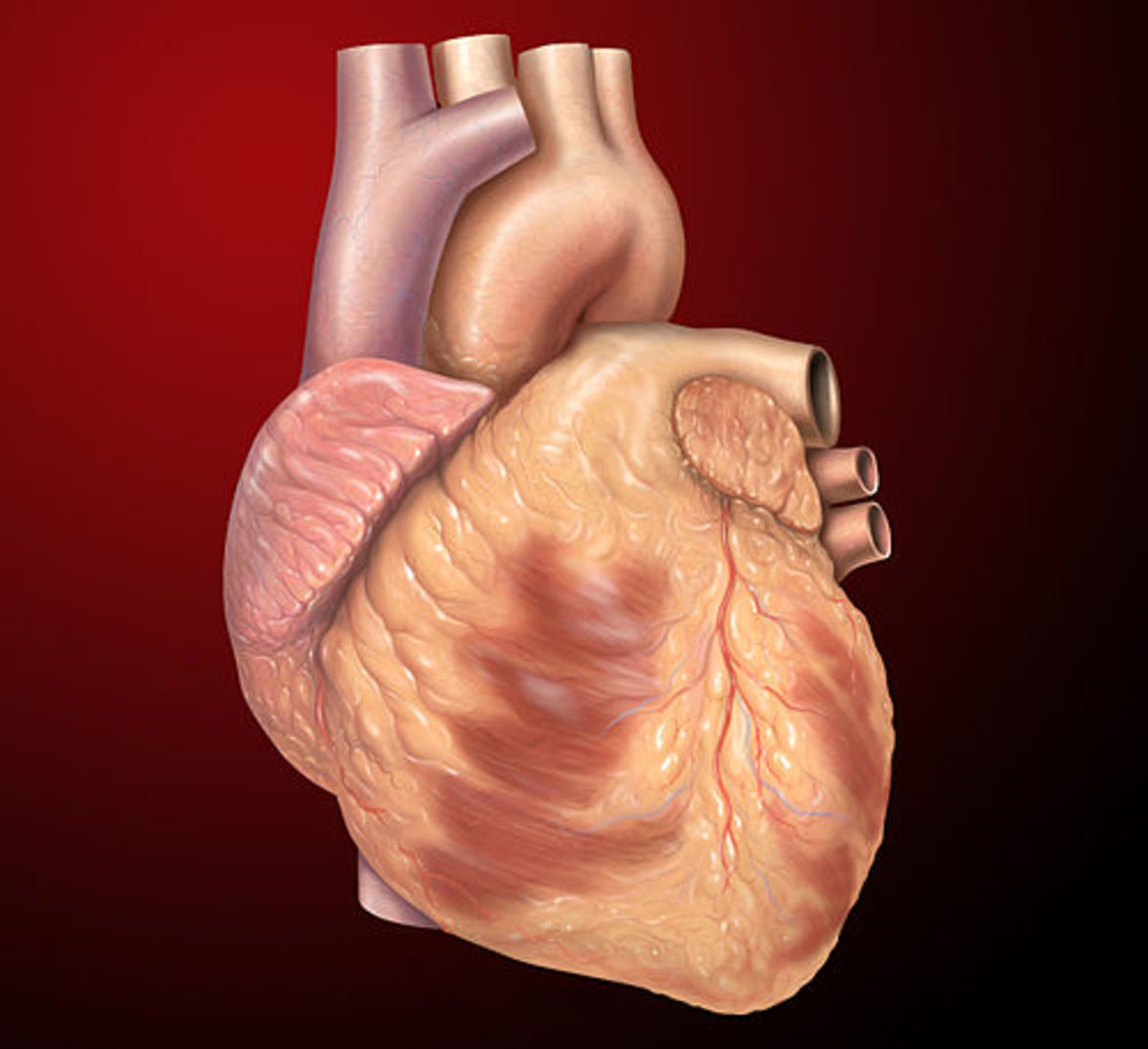Echocardiograms-Taking A Closer Look At The Human Heart.
Cardiac Image produced with an Echocardiogram
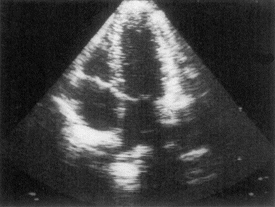
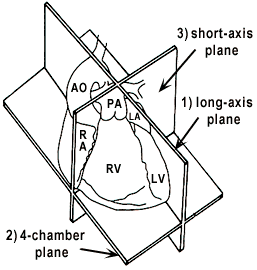
Color enhanced Echocardiogram of the heart
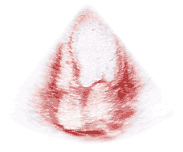
By looking at the image of an echocardiogram of the human heart, it may look to be nothing more than an undiscernible black and white photograph, to the unexperienced eye. However to a trained technician or cardiologist-(Heart Physician), this picture may take on a whole new meaning. Echocardiograms or ECHO's as they are sometimes referred to, are sophisticated exams that can capture detailed images of the heart muscle. Using ultrasound waves waves at a desired mega hertz frequency, a detailed image of the heart is sent back for further study.
These images that are relayed back to the technician, who are called Echocardiographic techician's, or Echocardiographer's are able to get a bigger working picture, as far as your heart is concerned. ECHO's are also painless and non-invasive procedures that can detect functional abnormalities of the heart muscle. The main objective of this type of diagnostic procedure, is to detect problems with your heart, before they actually occur.
If some of you are still confused between the echocardiogram and EKG, or electrocardiogram. These essentially, are two totally different exams and the EKG for example, is usually performed routinely during a complete routine physical performed by your Doctor. The EKG is an interpretative test, where twelve leads are placed on various points on your body (ie). legs, arms and chest. The graph paper placed within an EKG machine, records the electrical conductivity, that is emanating from different areas of your heart. For example the four different heart valves.
For the most part an EKG is valuable in many ways, in that it could detect an impending myocardial infarction (Heart Attack), as well as Atrial Fribillation, (An Abnormal Heart Rhythm). Yes this is a whole different area of diagnostic medical testing; that is used to diagnose abnormal heart problems. For the time being we, will further discuss the signifance and importance of Echocardiograms, rather than EKG's not only for detecting, but possibly even preventing heart disease alltogher.
The Cardiac muscle is without a doubt a very important piece of anatomical machinery, designed for pumping oxygenated blood to different parts of the bodily tissues. And in return delivering deoxygenated blood back to it, for filtering and waste disposal purposes. To do all this and more, the human heart has to be in tip top shape and to help keep it that way, besides by proper diet and exercise...tools like the Echocardiogram help keep our hearts healthy; by looking for potential underlying problems deep within it.
The echocardiogram, as briefly mentioned in this article; uses ultrasound waves to peer deeper within the chest cavity and examines the heart in more detail, than let's say an EKG, or Electrocardiogram. Besides measuring direction of blood flow within the heart chambers. Velocity of flowing blood,can also be detected. ECHO's can pick up and weed out a host of abnormal heart problems. They can even verify the thickness of the heart wall and respective heart chambers, which can in turn rule out cardiac Hypertrophy, or enlargement of the heart. An assessment of the pumping action of the heart's chambers, which include the upper Atria, and lower Ventricles can also be evaluated for disease.
Have you ever been to your Doctor's office and upon the exam, he or she asked you to take in a deep breath in,hold it, than let it out slowly? Your Doctor is basically instructing you to do this, because this is one technique during auscultation-(listening to sounds), of the chest/lungs; where your practitioner is listening for clicks or murmurs. Some heart murmurs are usually what are termed, musical in nature and usually have no significance. However if your doctor wants to rule out a more serious problem upon hearing a heart murmur, than he may have you schedule and Echocardiogram. Echocardiogram procedures are either scheduled at your doctor's office or at a local hospital. This particular exam usually costs approximately $1000.00 or more, but most insurances do cover this expense on an outpatient basis.
ECHO's are without a doubt, an important preventative diagnostic tool, with the goal of saving you from unnecessary medical expenses in the future. It will also save you much grief from having to experience underlying cardiac illness, at a later date, that can be discovered in advance. ECHO's are also used to detect fluid within the pericardium, which is- (the sac which surrounds the heart). In addition they will make the assessment; in determining whether the problem is severe, or even life-threatening.
If there is an active infection going on within your heart, the ECHO will also document the problem. And it will also serve in pinpointing an active infection going on around the heart valves. Sometimes the flaps that cover our heart valves, develop stenosis, or become hardened because of congenital abnormalities or other disease processes. If this occurs, the echocardiogram will also be able to detect this problem. Often blood clots and tumors congregate within the heart muscle as well. Echocardiograms in additon, will be able to pick out these tumors and blood clots. And ECHO's are able to detect within the lungs, and abnormal rising pressure, which can signify other conditions. So as you can see, the use of this diagnostic medical test; is a valuable tool in not only diagnosing heart disorders, but also in diagnosing other medical conditions.
Besides being extremely safe, the echocardiogram usually takes no more than twenty minutes to complete at the doctor's office. But if there tends to be further underlying health issues, such as obesity, lung disease, or a significant issue with shortness of breath, the exam may take more than an hour in some cases. Once your doctor reviews the images and interprets the results that are received from your ECHO. He or she will either phone you, or mail the results to you upon request.
Sometimes your doctor may want you to come into the office, for a follow-up consultation, because findings have indeed revealed a more serious heart murmur; that is non-musical in nature for example. Or possibly there is an apparent tear; in the septum of the heart resulting in leakage between the atria and ventricles. These are a few of the issues among multiple ones that can arise, not to alarm anyone, and your doctor only wants to rule them out.
For the majority of us who have echocardiogram's though; they will be nothing more than routine exams ordered by your doctor, to rule out future heart disease. And for some of us, it will be a procedure that is deemed necessary and one that will undoubedly save your life. Heart problems, like Diabetes for example can be an inherited disease. Genetics can enhance and even influence, these disease processes, and sometimes there's nothing much we can do about it. However by getting a routine ECHO on a yearly, or even bi-yearly basis for example, you may not only be doing yourself a favor, but doing your heart one as well. So have a heart and get to your healthcare practitioner soon, if you suspect any problems with your ticker.

